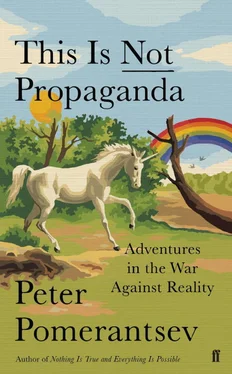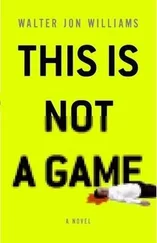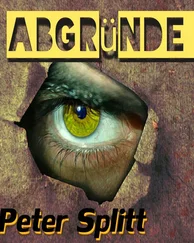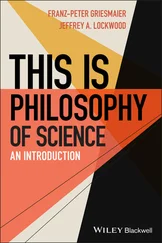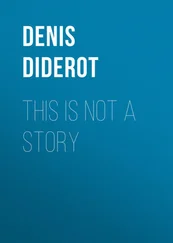So there we were, one set of journalists filming another sort of one interviewing a third. The job of journalists is to report information on reality, on where the action is. But, as Maria’s own story showed, information itself is now where the action is.
Maria was originally from Manila, but when she was ten her mother had taken the family to the US, where Maria was the smallest, brownest girl in Elizabeth, New Jersey, and precocious enough to be the first in the family to go to university (Princeton). She returned to the Philippines on a Fulbright in 1986 to study political theatre, only to find she had landed in the middle of a revolution against Marcos, where the greatest political drama was playing out on the streets. She joined CNN when it was just a minor US cable operation with grand ideas about becoming the first global news network. At CNN it was the on-screen reporter who was the most important, who decided which stories to cover, when and how. Maria wanted that authority, but she didn’t like being on camera, not least because she’d suffered from eczema all her life, which meant she had to come up with a paraphernalia of make-up and camera tricks in order to disguise it. The camera, however, loved Maria: her lack of pretence and almost puppy-like enthusiasm; the big eyes brimming with curiosity.
Maria became the face of CNN in the region, narrating South East Asia’s ‘democratisation’ in the 1990s, when, after Marcos, one authoritarian regime fell after another. It was tempting to see it all through the lens of Cold War victory, as many did, as a linear tale of ever-expanding freedom, which every new political turn was appearing to confirm. The terror attacks of 11 September 2001 shattered that simplistic story.
Maria was less surprised. She spoke local dialects fluently, knew how little ‘democracy’ was delivering in the unchangingly poor villages and slums. When she interviewed Al-Qaeda recruits and their families, what struck her was how normal their backgrounds were, how distant fundamentalist purity had originally been for most of them. Osama bin Laden’s trick had been to take the very different grievances of very different groups and give them the illusion that if they united globally, they would achieve a better world, if only they could get rid of unbelievers. In 2005 Maria moved on from CNN. In retrospect, she realised it was just in time. The network was changing, reporters were being asked to express their feelings rather than just give the facts, making money was becoming a more obsessive motivation. Maria wanted to investigate terrorists, not star in some reality-show version of the news.
On 9 June 2008, when she was running the news side of the Philippines’ largest television network, Maria was woken early in the morning by her star reporter, Ces Drilon: ‘Maria, this is all my fault… We’ve been kidnapped. And they want money.’ [5] Ressa, Maria A., From Bin Laden to Facebook: 10 Days of Abduction, 10 Years of Terrorism (London: Imperial College Press, 2013).
Despite Maria’s orders to the contrary, Drilon had chased an interview with Islamist insurgents and had been kidnapped, along with two cameramen, by Al-Qaeda affiliate Abu Sayyaf.
Over the next ten days Maria worked day and night to help coordinate the rescue effort, which ended after Drilon’s family managed to get enough money to satisfy the kidnappers’ demands.
After the hostages had been handed over, Maria began to research the identities of the kidnappers. She found that they were related to bin Laden through three degrees of association. This fitted in with a pattern she had observed since she began covering the growth of Al-Qaeda from Afghanistan into South East Asia. Ideologies spread through networks, and your fealty to them depended on where you stood inside the web. Instead of just studying ideas and socio-economic factors, one had to understand the interconnections between people to see why and how Al-Qaeda’s ideology was spreading. The same jumble of personal and social issues could have quite a different expression if they came into contact with a different network. And Maria realised that these physical networks were quickly being replaced with social media.
In 2012 Maria created Rappler, the Philippines’ first purely Internet-based news site. She wanted to put her insights into networks to good use. Rappler would not merely report on current affairs, but engage a greater online community that would organise crowdfunding for important causes. It would gather vital information to help victims caught in floods and storms find shelter and assistance. Rather than old-school hacks, Maria hired twenty-year-olds who knew more about social media. When you walk into Rappler’s orange and glass open-plan office you notice how young and largely female the staff are, with a small band of older journalists overseeing them with a hint of matronly severity. In Manila they’re known as ‘the Rapplers’.
When Duterte began his social media-inspired presidential campaign, he and Rappler seemed perfect for each other. The TV networks didn’t take him seriously. When Rappler held the Philippines’ first Facebook presidential debate, he was the only candidate who bothered to turn up. It was a runaway success. A poll of Rappler’s online community showed Duterte was ahead. His message – to vanquish drug crime – was catching on. Rappler reporters found themselves repeating his sound bites about the ‘war on drugs’. Later, when Duterte went on his killing spree, they would regret using the term ‘war’. It helped to normalise his actions: if this was a ‘war’, then casualties became more acceptable.
The trouble started with a wolf whistle. At a press conference Duterte whistled at a female reporter from a TV network. The Rappler reporter in the room asked him to apologise. Rappler’s online community filled up with comments saying she should be more respectful of the president. ‘Your mother’s a whore,’ they wrote. The Rapplers were taken aback. This language didn’t sound like their community. They put it down to the vestiges of sexism: any time a woman held a man to account, she would be attacked.
Meanwhile, Duterte’s language didn’t let up in its coarseness. [6] BBC News, ‘Philippine President Duterte Calls God “Stupid”’, 26 June 2018; https://www.bbc.com/news/world-asia-44610872 .
He called the Pope and US presidents sons of whores; enquired whether a journalist he didn’t like was asking tough questions because his wife’s vagina was so smelly; bragged about having two mistresses; joked about how a good-looking hostage should have been raped by him when he was mayor, instead of by her kidnappers. On TV Duterte said he wanted to eat the livers of terrorists and season them with salt; that if his troops raped three women each, he would take the rape sentences for them.
I learnt a little about the linguistic context behind such statements when I visited the comedy clubs in Quezon City, the section of Manila where teenage prostitutes and ladyboys congregate by night next to the TV towers of national broadcasters. The comedians pick out victims in the audience and roast them, taunting them about the size of their penises or their weight – and this right in front of entire families, who all laugh along at their relatives’ humiliation.
This is the language Duterte partially taps into with his incessant stream of dirty jokes. It’s a use of humour he shares with a troupe of male leaders across the world. Russian president Vladimir Putin made his rhetorical mark by promising to whack terrorists ‘while they are on the shitter’; US president Donald Trump boasted of grabbing women ‘by the pussy’; Czech president Miloš Zeman called for ‘pissing on the charred remains of Roma’; Brazilian president Jair Bolsonaro told a female politician she was ‘too ugly’ to be raped and that black activists should go ‘back to the zoo’; [7] Forrest, Adam, ‘Jair Bolsonaro: The Worst Quotes from Brazil’s Far-Right Presidential Frontrunner’, Independent, 8 October 2018; https://www.independent.co.uk/news/world/americas/jair-bolsonaro-who-is-quotes-brazil-president-election-run-off-latest-a8573901.html .
while in Britain the anti-immigration politician Nigel Farage, his outsized mouth gaping in a braying laugh, poured down pints and belched out rude jokes about ‘Chinkies’.
Читать дальше
